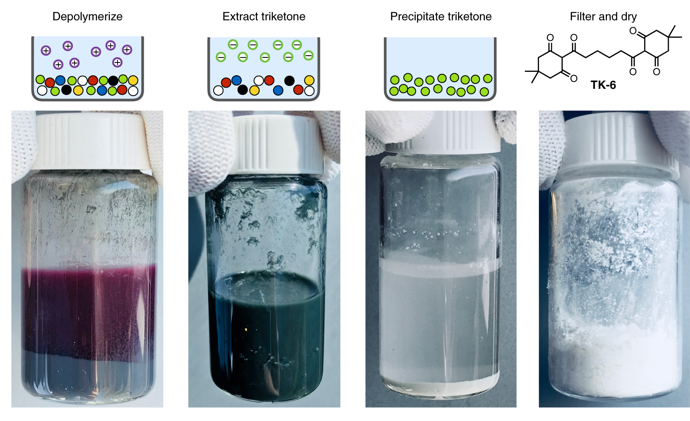Plastics are both a boon and a bane to all humanity. One the one hand, they are strong, light, and flexible.
On the other hand, they take centuries to break down, which has created an environmental catastrophe of unimaginable proportions.
Plastics today are made up of large molecules called polymers which in turn are created from shorter compounds called monomers.
Then those polymers are mixed with additives that make them suitable for a particular purpose. Some make a plastic tough. Others make it flexible. Still others change its color.
But those additives create strong chemical bonds with the polymers. Breaking those bonds is next to impossible in any cost effective way.
That’s what makes it so hard to recycle plastics.
Scientists at the Lawrence Berkeley National Laboratory say they may have a solution.
This time, instead of inventing plastics that never breakdown, they focused on recyclability from the beginning. The result is a new kind of plastic called poly diketoen amine or PDK.

Unlike conventional plastics, the monomers of PDK plastic can be recovered and freed from any additives simply by dunking the material in a highly acidic solution.
When the monomers are reused to make a new plastic, they are free of the characteristics that gave the original material is color, shape, rigidity, or stretchiness.
The monomers become building blocks for new plastics that bear no relationship to the originals.
The researchers next plan to develop PDK plastics with a wide range of thermal and mechanical properties for applications as diverse as textiles, 3D printing, and foams.
In addition, they are looking to expand the formulations by incorporating plant-based materials and other sustainable sources.
Reference- Clean Technica, Science Daily, ABC News, Nature Chemistry






